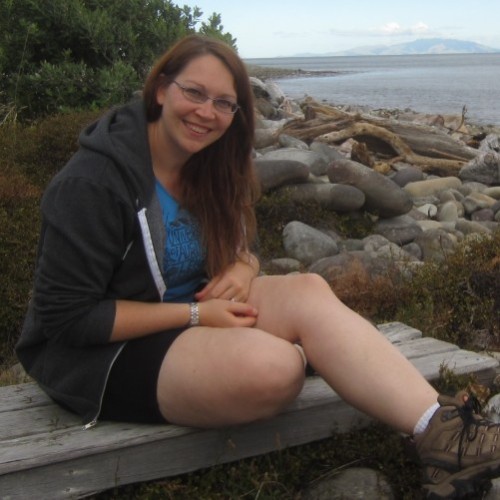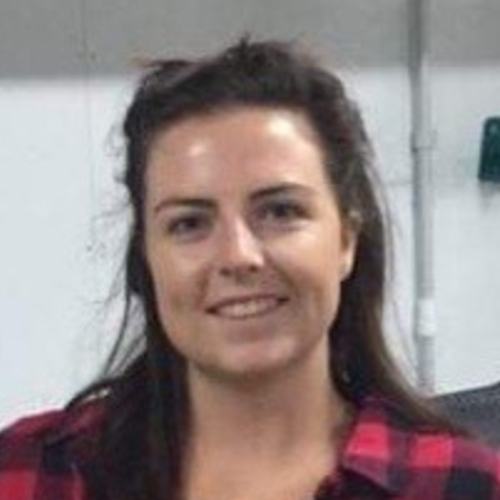
Master of Marine Conservation – MMarCon
Learn how to make a difference to coastal and marine environments in New Zealand, the Pacific, and around the world, with a postgraduate degree in Marine Conservation.
The people you work with and learn from are an important part of your studies. Learn who the teaching staff are and hear what the programme is like.
Academic staff
- Prof James BellProf James Bell—Sponge ecology, coral reef ecology, marine conservation
- Prof Simon DavyProf Simon Davy—Cnidarian-dinoflagellate symbiosis, coral reefs, coral bleaching, coral disease
- Prof Jonathan GardnerProf Jonathan Gardner—Population and seascape genetics, connectivity, marine protected areas, deep-sea vulnerable marine ecosystems, rocky reef ecology, bioinvasions and biosecurity, human impacts on marine ecosystems
- Prof Nicky NelsonProf Nicky Nelson—Conservation biology
- AProf Nicole PhillipsAProf Nicole Phillips—Reproductive and larval ecology, marine invertebrates, coastal ecosystems, environmental stress, global change biology, life history trade-offs
- AProf Peter RitchieAProf Peter Ritchie—Population genetics, phylogeography, fisheries genetics, genomics, evolution
- Prof Ken RyanProf Ken Ryan—Ecophysiology, Antarctic biology
- Dr Alice RogersDr Alice Rogers—Fisheries, climate change impact on fisheries
- Prof Ashley RowdenProf Ashley Rowden—Marine ecology, marine environmental management
- Prof Jeff ShimaProf Jeff Shima—Reef fish ecology, population and community ecology, early life history, larval dispersal
- Prof Joe ZucarelloProf Joe Zucarello—Algal evolution, diversity, taxonomy, phycology, algal pathogens, molecular evolution
Stories

Katie Clemens-Seely
Master of Marine Conservation graduate
Science advisor at Department of Conservation
“There was a wide range of courses on offer—from fieldwork throughout New Zealand and on the Great Barrier Reef, to data analysis, to the opportunity to do a research project, which then led to a publication in a scientific journal.”
Interested in a conservation-orientated degree that would allow her to gain practical and research skills, Katie decided to do a Master of Marine Conservation.
Variety and opportunity
“There was a wide range of courses on offer—from fieldwork throughout New Zealand and on the Great Barrier Reef, to data analysis, to the opportunity to do a research project, which then led to a publication in a scientific journal. This combination was ideal and is so useful in my current role where I’ll be writing and editing scientific reports one day, and conducting field work in the subantarctic zone the next.”
Diving into work
Since completing this programme, Katie has worked at the Goat Island Marine Discovery Centre, the Leigh Marine Lab, and the Victoria University Coastal Ecology Lab. Currently she works at the Department of Conservation.
“My role is diverse. Over the years I’ve participated in the reviews of the Maui and Hector’s dolphin Threat Management Plan and acted as lead project manager for the development of the New Zealand sea lion Threat Management Plan.”

Holly Lane
Master of Marine Conservation graduate
Fisheries Observer at Ministry of Primary Industries
This degree is a great combination of practical and theoretical learning. It allowed me to earn the same qualification as a traditional two-year Master’s in just one year.
A hands-on qualification
After finishing a Bachelor of Applied Science in Aquaculture and Fisheries with a minor in Environmental Science, Holly wanted to further her studies. So she enrolled in a Master of Marine Conservation.
“I’ve always had an interest in the conservation of marine resources, both in New Zealand and internationally. I chose the Master of Marine Conservation at Te Herenga Waka—Victoria University of Wellington because it allowed me to gain the same skills and qualification as a two-year Master’s in just one year.
“There was plenty of practical work throughout the year, which I loved. I had the chance to work in some amazing locations, such as the Marlborough Sounds, Hawkes Bay, and Fiordland—I even spent two weeks in Indonesia examining the conservation issues and practices in tropical coastal environments.”
A new city
Holly moved to Wellington to start her degree, which opened up a diverse range of opportunities for her.
“There’s always something going on in Wellington. It was very easy to find volunteer opportunities, which helped me to network and gain great experience. It also allowed me to give back to the community, which I feel is very important.
A career at sea
Holly didn’t waste any time and found herself heading to Nelson to begin Fisheries Observer training the day after her last University exam.
“I’ve been working as a fisheries observer for almost three years now. It’s a great job with heaps of hands-on work. I get the chance to travel around New Zealand and work with some amazing people on a variety of vessels. I recently spent two and a half months as an observer down in Ross Sea, Antarctica.
“I think being an observer is an important part of sustainability. We collect a lot of the scientific information that scientists use to determine how much fish is caught from different areas to analyse the future of fish stocks.”
Previous
RequirementsNext
How to apply

